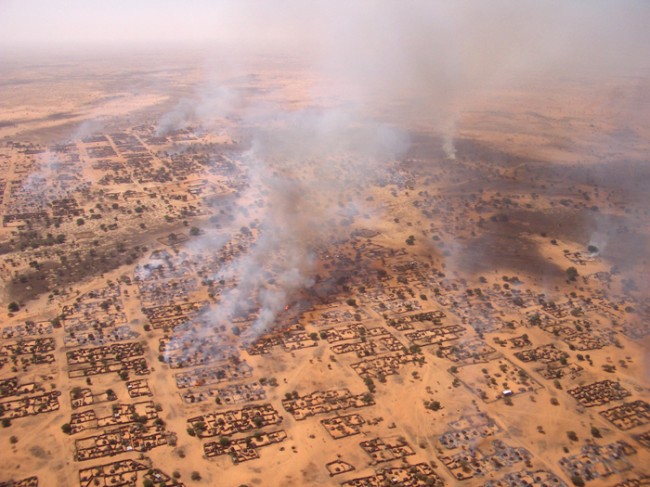Malakal in the Upper Nile State of Sudan is the site of the most recent fighting, continuing the now-10-day struggle for power between the Kiir government and the Machar-led rebels. Malakal is the capital of the Upper Nile State, an oil region.
On December 24 the South Sudan army defeated the rebels without much resistance in Bor, which had been under siege for a week after the rebels took it late Wednesday. The violence in Bor prompted 17 000 civilians to flee to UN compounds. Information Minister Michael Makwei said, “We recaptured Bor on Tuesday evening, just before sunset, and this morning there are currently operations against some pockets of rebels within the airport area,” also announcing that the remaining rebels were on the run.
The Sudanese government has stated that Malakal has not fallen to the rebels, but fighting continues. Much of Jonglei state is still held by the rebels.
The unrest began 10 days ago on December 15 and quickly spread from Juba. The country was divided between Nuer and Dinka ethnicities.
Fighting began Tuesday between rebels and government loyalists after President Kiir accused his former Vice President Riek Machar of attempting a coup. Machar countered that Kiir was on a campaign to purge his rivals. Machar vowed to oust Kiir and called on the army to carry out this purpose. A powerful army commander mutinied last week, joined Machar, and seized Bentiu.
A mass grave was reported to have been discovered in Bentiu. On Tuesday UN officials stated that the remains of up to 75 Dinka soldiers (Sudan People’s Liberation Army). Bentiu is the capital of the rebel-held Unity State. Two other mass graves were found in Juba. UN officers have not been able to visit the two Juba grave-sites, in Jebel-Kujur and Newside, near Eden. These killings followed ethnic violence. (The reports of the mass grave in Bentiu is currently under review after being denied by the UN mission in South Sudan. The report was initially issued by the office of the UN Commissioner for Human Rights, and was later revised to 34 bodies and 75 missing persons.)
UN Human Rights High Commissioner Navi Pillay stated, “Mass extrajudicial killings, the targeting of individuals on the basis of their ethnicity and arbitrary detentions have been documented in recent days.”
Pillay also talked about the hundreds of civilians were who arrested from houses and hotels in Juba during a house-to-house search.
The same Tuesday a resolution was passed by the UN Security Council to send an additional 5500 peacekeepers to South Sudan. The force will likely be assembled from peacekeepers currently stationed in other African countries. The UN also intends to boost contributions.
Currently, 40 000 Sudanese are sheltered in UN bases. Civilians of both tribes fear being killed by ethnic enemies. Relief organizations are struggling to handle thousands who are caught in the fighting or have fled from violence in the capital. 80 000 Sudanese have been forced to leave their homes.
Responding to allegations of “death squads” carrying out ethnicity-targeted massacres, South Sudan foreign minister, Barnaba Benjamin, replied, “This is not an ethnic war frankly speaking…. It is true that this is a struggle for power, a political struggle.” Benjamin admitted that there were isolated cases of genocidal killing, but asserted that this was not the main theme of the conflict, and reminded observers that the army was mixed-race.
U.S. Marines have been moved to Djibouti in preparation for the evacuation of Americans and to protect U.S. facilities.
December 15, President Kiir accused former Vice President Machar of attempting a coup in Juba, which attempt Machar denied. Kiir is Dinka and Machar is Nuer. Both leaders have indicated their willingness to talk peace.
President Kiir announced, “Innocent people have been wantonly killed. People are targeting others because of their tribal affiliation. This is unacceptable…. These atrocities recurring by now have to cease immediately.”
Machar announced December 24: “Yes we are ready for talks. I have formed my delegation.” This delegation would likely attend talks in Ethiopia, with whose government Machar had been in communication. Ethiopia was decided on as a site of “neutral ground.” Machar himself would not go to Ethiopia, he said.
However, Machar announced that he was willing to negotiate only on condition that detained political prisoners were freed by the government. Kiir rejected this condition.
A spokesman from the army stated that within a few days the army would attack Bentiu.
Americans and UN officials members of every level have called for peace. Commentators have started to voice concern over the compatibility of the Sudanese situation with the Central African Republic and other African nations which slid into genocide and lawlessness. For now, fighting continues in Malakal after Bor was recaptured yesterday.
By Day Blakely Donaldson
Sources:
Voice of America
ABC Reuters
New York Times
Google ABC
Reuters
